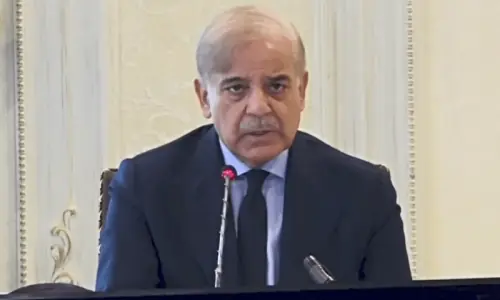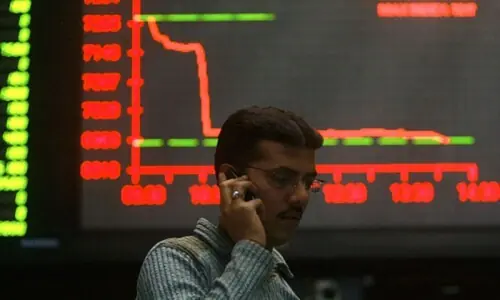LIMITING global temperature increase to 1.5 degrees Celsius above pre-industrial levels is the overarching aim of the 2015 Paris Agreement; breeching that limit would have disastrous consequences. Its five-year work cycle outlines a roadmap to combat climate change, adapt to its effects and manage risks associated with it through national climate action plans known as Nationally Determined Contributions (NDCs).
In the decade since the agreement, the world has trudged along that roadmap making steady progress. Based on their NDCs, countries have taken measures to move towards net-zero emission targets. Major economies and entities have set timelines and adopted policies to become carbon neutral. The EU, for example, aims to reduce emissions by 55 per cent by 2030 and achieve net-zero greenhouse gas (GHG) emissions by 2050. China wants to achieve carbon neutrality before 2060. Several other countries have committed to attain net-zero by 2050.
Constrained by financial challenges, the quest of developing countries to reach net-zero will be arduous and contingent on receiving huge investments from their development partners. NDCs submitted by developing countries commonly refer to finance as a constraint. Some have furnished quantified estimates of their financial support needs, invoking provisions of the Paris Agreement which urge developed countries to take the lead in providing financial assistance to countries that are less endowed and more vulnerable to the impacts of climate change.
Since the Paris Agreement came into effect, there have been some positive developments; for example, the establishment of the Loss and Damage Fund under the UN Climate Convention. The fund has now been operationalised to assist climate-vulnerable nations.
COP30 in Belem this year will transact a heavy agenda.
The Green Climate Fund, the world’s largest climate fund, is enhancing support to developing countries to translate their NDCs into climate investments and programming. At COP29 in Baku last year, developed countries pledged to mobilise $300 billion by 2035 to assist vulnerable developing countries — a threefold increase from the earlier pledge of $100bn. However, the financial needs of the latter far exceed the available resources.
The United Nations Environment Programme estimates the adaptation finance gap at $187-359bn per year. The ask for a just energy transition for developing economies will be much higher. That is why COP29 called for scaled-up financing for developing countries to at least $1.3 trillion per year by 2035 from public and private sources.
Meeting these high targets appears burdensome. COP30 in Belem this year will transact a heavy agenda and make critical decisions. Climate finance will be a hot topic again, as will the importance of capacity building for transferring low-carbon and green technologies to developing countries for a just energy transition.
The global stock-take of the Paris Agreement in 2023 acknowledged the progress but also highlighted the need for the next NDCs to be more ambitious and broader based. With the energy sector the main source of GHG emissions, NDCs must be supported by multitiered and multisectoral strategies to enable energy transition in a timely manner.
Due this year, the updated NDCs would raise the bar to keep hope alive to limit global warming to less than 1.5°C. In a recent development, the International Maritime Organisation approved net-zero regulations for shipping — a long-awaited move that will complement international efforts. Shipping accounts for about 3pc of global emissions. With this deal, shipping becomes the first industry with a mandated net-zero framework for reducing emissions.
Bracing for Belem, host Brazil is active to ensure that COP30 lives up to expectations amid challenging circumstances. It has unveiled plans to launch an ambitious $125bn fund to protect tropical forests as part of a strategy to galvanise climate action. Some nations have already offered to join the initiative. On the diplomatic front, in March this year, COP30 president Ambassador André Corrêa do Lagowrote an open letter to governments and other stakeholders calling for transitioning the COPs from negotiations to a phase of “full implementation” and “mobilisation of all of humanity’s resources to tackle structural inequalities within and among countries”.
Raising the pitch, UN Secretary-General António Guterres has urged leaders to “lay out a bold vision for a just green transition over the next decade”. He said at COP30 that “leaders must deliver a credible roadmap to mobilise $1.3tr a year for developing countries by 2035”, also reminding developed countries of their promise to double adaptation finance to at least $40bn a year by this year.
Belem offers a chance for collective action for climate-resilient societies. This chance must not be missed.
The writer is director of intergovernmental affairs, UNEP.
Published in Dawn, May 2nd, 2025





























